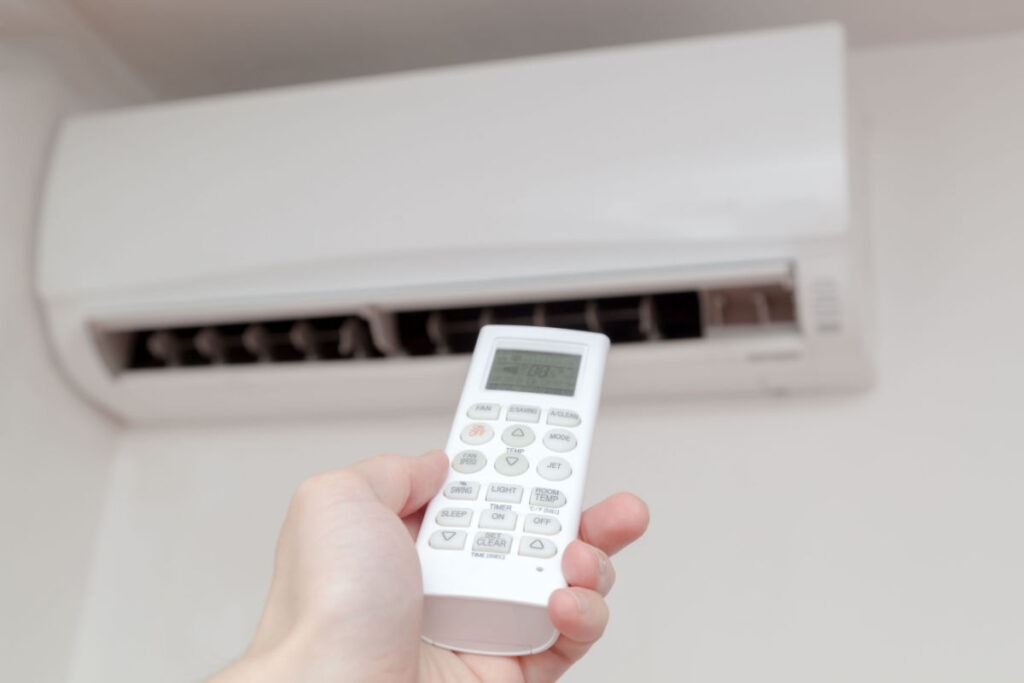
Whether you’ve recently upgraded to using a heat pump in your home or you’ve been relying on one for the past several years, there’s no doubt that these combined heating and cooling systems are efficient, effective, and easy to use. However, like all HVAC systems, they can run into issues, especially if you forget to book routine air conditioning service in Anderson Township, OH.
One common problem many people encounter when using a heat pump for heating or cooling is unexplained system shutdowns. It can get uncomfortable quickly when your heat pump turns off suddenly, especially on a freezing cold or scorching hot day, but don’t worry — the Better Choice team is here to help. Keep reading to find out some common reasons why heat pumps shut down.
Trouble With the Thermostat
Your heat pump is designed to turn on (or off) at a specific target temperature. If you haven’t adjusted these temperatures to your personal tastes or can’t figure out how to do so correctly, you’ll be at the mercy of your unit’s thermostat — rather than the other way around. To ensure you can actually enjoy heating or air conditioning that keeps you comfortable, make sure to ask an HVAC technician how to properly set temperatures on the thermostat.
Not all thermostat problems occur due to incorrect settings. Sometimes they happen when the thermostat itself malfunctions and sends the wrong signals to your heat pump. As a result, your heat or AC ends up switching off prematurely, even if the target temperature hasn’t been reached. Sometimes, a simple re-calibration or battery replacement can fix the issue. However, if the thermostat needs to be replaced entirely, don’t attempt this difficult job yourself. Instead, call our technicians for professional AC repair in Milford, OH, and save yourself time, money, and trouble.
Refrigerant Leakage
Because most technology you use for heating and cooling your home relies on refrigerant, a refrigerant leak can spell disaster for any HVAC system — not just heat pumps. Just like how even a pinhole-sized hole in a water bottle will cause liquid to trickle out over time, a hole or crack in your system’s refrigerant lines will slowly reduce the amount of refrigerant that your heat pump can use. When your heat pump’s refrigerant levels get too low, the unit can’t work as efficiently, and it will begin to overheat. In response to this emergency, the entire system will automatically shut off, suddenly depriving you of heating or cooling.
How do you know when you have a leak on your hands? Watch out for hissing sounds coming from the unit, ice forming on the coils or refrigerant lines, or a sudden increase in energy bills. If these signs appear, your heat pump’s refrigerant levels must be checked ASAP, and any leaks should be repaired immediately.
Soiled Coils
The evaporator and condenser coils in your heat pump can become dirty over time, reducing efficiency and causing repetitive overheating. Cleaning the coils will prevent this problem, but this job should always be handled by a professional because it involves sensitive components of your heat pump. We recommend that customers schedule a tune-up appointment every six months (ideally in spring and fall, before changing from heating to cooling modes or vice versa).
Old Filter
How long has it been since you swapped out the air filter in your heat pump? If it’s been over four months, you’re overdue for a change. As dust, dirt, and other particles in the air accumulate inside the filter, they begin to restrict airflow, causing the system to work harder to convert heat from the outdoors into cool air (or the other way around). In some cases, restricted airflow can lead to a total system shutdown, so don’t forget to find out what type of filter your unit requires. Once you’re certain you know what to purchase, do some research on changing it (or have our team do it for you).
Electrical Problems
If your heat pump is mechanically in good shape but still ends up short cycling, the problem may lie outside the unit and inside your home’s electrical system. Issues such as faulty wiring or tripped circuit breakers can cause power issues for your heat pump and the rest of your major appliances. If you suspect you’re dealing with an electrical problem, have a professional inspect your system ASAP to reduce the risk of fire or shock.
Incorrectly Sized Unit
Did you know that your heat pump might actually be too large or too small for your home? If your heat pump is too small, it won’t be able to keep up with the demand for heating or cooling, which can lead to discomfort and higher energy bills. Conversely, if the heat pump is too large, it can lead to short cycling, which causes the unit to turn on and off frequently, reducing the efficiency of the system and leading to more wear and tear.
Before installing your new unit, your previous HVAC company should have performed a load calculation to determine the ideal size for your space. This calculation takes into account the size of your home, as well as your insulation levels, windows, ceilings, and walls (among other factors). In addition, the technician should consider your local weather patterns and your current heating and cooling system.
While we always triple-check our work here at Better Choice, not all HVAC companies are as careful as we are. If the initial load calculation was not performed correctly, your heat pump may need to be modified or replaced. Let us inspect your unit, and then we can discuss your options.
Better Choice Is Here For You!
Don’t let a faulty heat pump affect your home and family. Contact Better Choice Heating & Air Conditioning today and schedule a heat pump repair! We’ll be there quickly to help get to the bottom of this common problem.
The post Reasons Your Heat Pump Keeps Shutting Off Before Reaching the Desired Temperature appeared first on Better Choice Heating & Air Conditioning.


